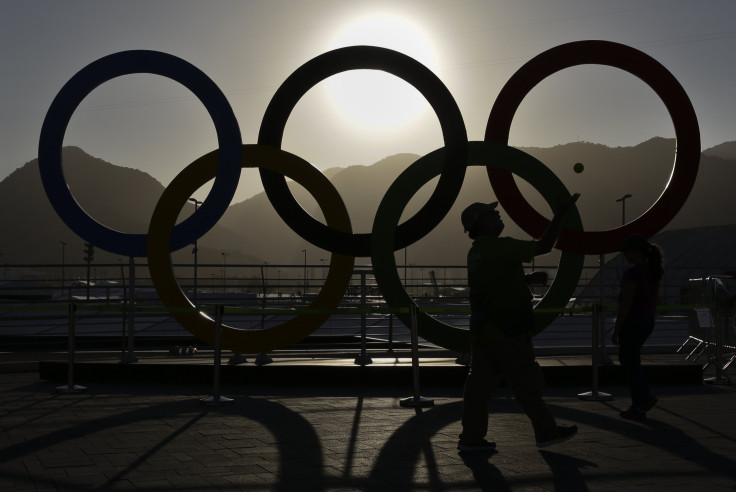Who Is John Carlos? 1968 Olympian In 'Black Power' Fist Image Calls For Activism From Famous African-Americans

John Carlos is best known for a single, brave act that's lived on through an iconic image. At the 1968 Mexico City Olympics, after winning the bronze in 200-meter dash, the black track athlete raised a gloved fist in the air on the podium alongside gold-medal-winner and U.S. teammate Tommie Smith.
It was largely taken as a black power salute, but Carlos said in an NPR interview Thursday that many misunderstood the message. "We were making a humanitarian statement, now if you have to cross the lines of politicism then so be it," Carlos said in a talk with NPR Morning Edition's Renee Montagne. "We were there basically making concerns about people that were less fortunate in this society in which we lived."
Montagne asked him about many reading the act being read as a "black power salute," which Carlos said was a result of influence from "right wing press" that said he and Smith were "black militants and were trying to burn down America and burn down the Statue of Liberty, which was total nonsense."
"The only 'black power' was our black butts running down that track. That was the power right there in itself," Carlos said.
When John Carlos raised his fist at '68 Olympics, his 'Black Power' salute caused an uproarhttps://t.co/rQQTCROAp3 pic.twitter.com/7CGawQamIi
— Renee Montagne (@nprmontagne) August 18, 2016
Carlos has long been involved with activism. He suffered for it: both he and Smith were kicked off the U.S. team in '68 and sent home. He told Fox News Latino this week that the work he was involved in back in the '60s and '70s planted the seed for movements like Black Lives Matter. He mentioned in the NPR interview that famous black people have an obligation to get involved in activism.
"If you're famous and you're black, you have an opportunity to be a voice for the voiceless," Carlos said. "It's your responsibility to realize that although you made it in this bubble, so to speak, 99.9 percent of the people from your environment has not made it in that bubble."
John Carlos, who won bronze in the 200 meters in 1968, on what it takes to be an Olympian: https://t.co/ifuonYhnFT pic.twitter.com/jtl5hK5ZHk
— New York Times Opinion (@nytopinion) August 16, 2016
As for these 2016 Rio Olympics, Carlos expressed a particular fondness for the accomplishments of Simone Manuel, who won gold in the 100 meter freestyle, becoming the first African-American female swimmer to take gold in an individual event. Carlos' childhood aspirations actually involved the pool, not the track.
"I sit back and I marvel about [Manuel] because that was my idea as a young kid, seven or eight years old, to go to the Olympics as a swimmer — telling my dad I’d be the first black swimmer to represent America, but based on the color of my skin that wasn't possible at the time," he said to NPR.
Manuel, just 20 years old, meanwhile, has spoken out about cultural issues using her platform as a star athlete. With race issues a growing concern in the U.S. her win meant even more, Manuel said.
"It means a lot, especially with what is going on in the world today, some of the issues of police brutality," Manuel said, according to USA Today. "This win hopefully brings hope and change to some of the issues that are going on. My color just comes with the territory."
© Copyright IBTimes 2024. All rights reserved.












